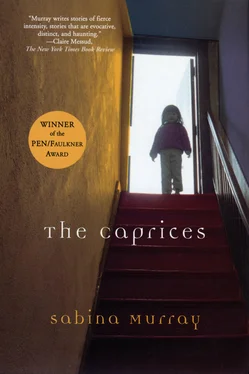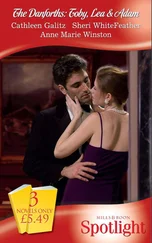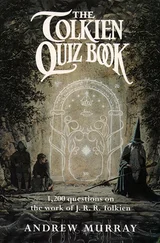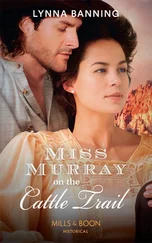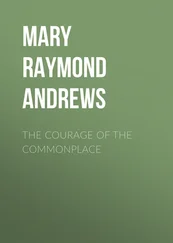“Why are you here?” Jim repeated.
Matsuo lowered his gaze. He looked up the road, then, clenching his teeth in pain, began walking away.
TWENTY-EIGHT YEARS had passed since Carlos Salas had seen Pio Balmaceda. Salas was now a success: a citizen of Manila with his own rooms, a bank account, a respectable job of no distinction. The war had left him with the stiff-shouldered stoop of an older man well past his fifties, but in Salas this looked formidable rather than weak. He was popular with the bar girls — who found him quiet and easy to accommodate — since getting married was out of the question. For a man of his means, he was careful with his appearance. His linen suit bagged at the knees. His shoes were well shined, but the toes angled upward.
Salas stood leaning on the back of a bench, looking street end to street end for a taxi. He was unfamiliar with this part of Manila. His head was heavy and his expression subdued, indicative of a general weariness of life. His features were more Chinese than Malay, but in Quiapo — Chinatown — this was not unusual. In fact, the preponderance of Chinese and Chinese mestizos is why he second-guessed himself when he first saw Balmaceda (who was not Chinese, but was easily taken as such) across the street, through the smudgy window of a restaurant.
Balmaceda was eating a siopao. He raised the bun to his mouth with small, ratlike hands. He nibbled at it, looking first to the right, then to the left. Salas leaned in closer (the street was not very wide), growing more convinced that it had to be Balmaceda. Salas abandoned his bench and crossed the street. He hid by a news vendor, shifting from one foot to the other to stop his back from seizing up, which it did when he stood for long periods of time.
This had to be Balmaceda tilting his head nervously from side to side as he ate, eyes ever alert to the possibility of a surprise, attack or otherwise. Salas remembered those awkward movements, remembered being bothered by them years earlier, when he and Balmaceda had spent long hours together. No doubt, Balmaceda’s foot would be tap-tapping away on the linoleum, communicating his anxiety in code. Salas decided to slip away without confronting him. He hadn’t seen Balmaceda in twenty-eight years, but it was more than this length of time that had kept them separate. Why would Salas approach him now? What would he say?
Halfway down the block Salas realized that he could have been wrong. What if it wasn’t Balmaceda? The man he had watched was fat and had a slovenly bearing. What if it was someone else? Chinese were often mistaken for Japanese. Salas continued down the street, but he could not outdistance his desire to know for sure. He remembered Balmaceda looping little circles of despair with his twitching hands. He remembered Balmaceda’s birdlike, sporadic gaze. The man’s weight gain could account for the blunting of features. His stooped frame as he bent over his food could simply be the result of the march of years, or the absence of a military lifestyle that required a certain erectness. Faces and bodies changed, but people kept their mannerisms for life.
Salas paused beneath a flashing sign that outlined the shape of a bucking steer. Poor lettering in the window promised women and steak. He stood there thinking, until the impatient proprietor swung open the door, releasing chilled, smoky air into the street. He smiled at Salas; one tooth was outlined in gold and looked like an empty picture frame. Dance music boomed behind him. Salas shook his head.
Salas decided he needed a second look. By the time he got to the restaurant, the possible Balmaceda was gone. Salas took a chair at the table where the man had been seated; the view of the city was grim — a pharmacy, a few taxis, a tree beneath which street children gathered, all grayed and weighted by the sooty air. The traffic light turned red and children lit into the stopped traffic, tapping the windows with empty cups, their faces somber and dirty. Then the light turned green and they returned to their tree, flitting back like sparrows. Dead flies with their legs neatly folded littered the inside of the window. Salas drummed his fingers on the greasy Formica tabletop. Was it or was it not Balmaceda? A man in a dirty apron came out from the kitchen to take his order. Salas ordered a Coke, just to be polite, then asked the waiter about the man who had occupied his seat. Was he a regular? The man in the dirty apron thought this through.
“Are you sure you wouldn’t like to eat?” he said.
“I’ll take one siopao,” said Salas.
“What kind?”
“Asado, I guess,” said Salas, although he wasn’t overly fond of it.
“Is that all?”
“Don’t get greedy,” Salas said. “It is, after all, a very small question.”
“Monday through Friday for lunch,” said the man. He returned a short while later with a small bottle of Coke and a steaming siopao.
“We have ice cream.”
“What kind?”
“Queso.”
Salas did not like cheese ice cream, but he figured this man had something to offer in addition to dessert. He stirred his ice cream, watching it pool into itself. The man in the apron looked closely into Salas’s face.
“You were standing across the street.”
“I was.”
The proprietor nodded, satisfied. He handed Salas a folded newspaper. “This newspaper terrified him,” he said.
Salas unfolded the newspaper. He gazed in disbelief at the front-page headline.
“He saw you watching him,” said the proprietor. “He ran out of here the moment you left.”
Salas returned to his apartment with the newspaper tucked neatly under his arm. He sat on his couch for close to half an hour with his right hand resting lightly on his brow before he finally unfolded the paper. The headline took up one half of the front page.
DISCOVERED BUDDHA ACTUALLY BRASS.
Brass. But this was impossible.
The newspapers had been running articles on the Buddha for weeks. An amateur treasure hunter, Rogelio Roxas, had unearthed the Buddha in Baguio, a city to the north, in a neglected tunnel of the Benguet mines. The cavern had been sealed with concrete, littered with human bones. This was the handiwork of the Japanese, who had looted every corner of Southeast Asia during the war. The gold had followed them to the Philippines. After the surrender in 1945, there had been many attempts to locate the hoard, the richness of which was impossible to calculate. The gold was said to be hidden beneath the streets of Manila, in the mountains of Baguio — even in the Nachi , a Japanese ship sunk in Manila Bay. This treasure had been labeled “Yamashita’s Gold.” Its existence was always disputed, shrouded in mystery — the stuff of legends and romantic idiocy. But Rogelio Roxas claimed to have found one of the caches. And he swore the Buddha was gold, hollow, and filled with jewels.
For a moment, Salas had no idea what to make of it. Brass? This confused him. Then he smiled, then he laughed. This was a puzzle, a deep, dark puzzle. The newspaper article went on to say that the statue was solid — which would make a jewel-filled cavity impossible. The statue was decidedly not Thai, but no possible origin was put forth. And this, yes, he understood. He understood Balmaceda’s fear, his not wanting to see him. And who knew what trouble Balmaceda was in? The origin of the brass Buddha was somewhere in the Philippines, probably Manila. Somewhere in this sullen city an artist in a windowless room sculpted, sprewed, and vented. He probably was laid out on the floor now with a bullet in his head. There was still black wax beneath his fingernails. The hair on his arms was singed from the casting. Brass indeed. Of course, it was a phony. Not even a copy. DISCOVERED BUDDHA ACTUALLY BRASS carried the subheading “There Is No Yamashita’s Gold Buried in the Philippines.”
Читать дальше
